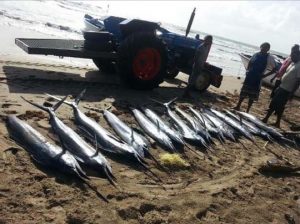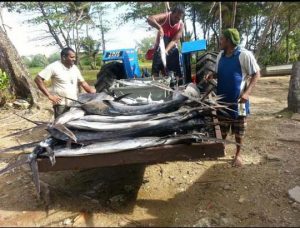Recent images from the island nation of Trinidad & Tobago have again brought attention to the plight of billfish in the Caribbean.


The photos show over a dozen billfish that were landed in Trinidad by local fishers, who likely are unaware of the economic benefits a live marlin can bring to their nation if left in the water. The sportfishing eco-tourism trade leads to greater economic benefits and jobs for the community than the one-time-use of the fish as food.
According to numerous locals with whom TBF’s management has spoken, fishers in fact prefer to catch other pelagic species like tuna and dolphin. Marlin are more difficult and time consuming to catch, and can damage their hand gear; however, if that is the only fish caught that day, it will be kept.
TBF reaffirms that marlin landed by local fishers does not reflect the highest and best use of the species for the island’s economy. It is hoped that the government tourism agency and fisheries officials will help change the needless killing of billfish, especially when other fish are available in local waters. TBF is looking at ways to bring sportfishing socio-economic data to government officials in Trinidad in hopes of shedding light on the positive uses of billfish by locals.








